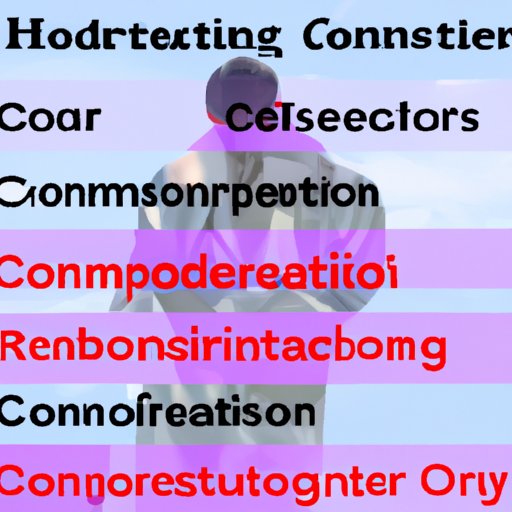Introduction
A coroner is a public official responsible for investigating deaths that occur under unusual, suspicious, or violent circumstances. A coroner’s job involves determining the cause and manner of death, as well as examining any evidence associated with the case. To become a coroner, one must possess certain qualifications and certifications, understand their duties and responsibilities, and possess certain skills and qualities.
Qualifications and Education Needed
In order to become a coroner, one must have at least a bachelor’s degree in a field related to forensic science or criminal justice. Depending on where one is applying for a coronership, some employers may require a master’s degree. In addition to educational requirements, coroners must also possess certifications from organizations such as the American Board of Medicolegal Death Investigators (ABMDI) or the National Association of Medical Examiners (NAME).
Duties and Responsibilities
The primary duty of a coroner is to investigate deaths that occur under unusual, suspicious, or violent circumstances. This involves examining the body and collecting evidence, conducting interviews with witnesses, and preparing reports. Coroners also perform autopsies and testify in court when necessary. In addition, they are responsible for issuing death certificates, which are legal documents that state the cause and manner of death.
Day-to-Day Life of a Coroner
A typical day for a coroner can vary greatly depending on the number of cases they are working on. Generally, a coroner spends most of their time conducting investigations, writing reports, and attending court proceedings. They also work closely with families of the deceased to provide them with information and support. Coroners must be able to handle highly sensitive situations, as they often work with grieving family members.
Skills and Qualities Required
In order to be successful in this role, coroners must possess certain skills and qualities. Professionalism is essential, as coroners must be able to conduct themselves in an ethical and respectful manner. Good communication skills are also important, as coroners must be able to communicate clearly and effectively with other professionals and the general public. Additionally, coroners must have a solid understanding of scientific principles and methods in order to properly analyze evidence and draw conclusions.
Challenges and Rewards of Being a Coroner
Being a coroner can be a challenging and stressful job. The environment is often fast-paced and demanding, as coroners must be able to quickly assess and process evidence. Despite the stress, there are many rewards to being a coroner. One of the most rewarding aspects is the satisfaction of helping others by providing closure for families who have lost a loved one. Additionally, the sense of accomplishment that comes from solving difficult cases can be very fulfilling.
Conclusion
Becoming a coroner requires specific qualifications, certifications, and skills. Coroners must be able to investigate deaths, prepare reports, and appear in court. They must also have strong professional, communication, and scientific skills. While being a coroner can be a stressful and challenging job, it also has its rewards. Coroners have the satisfaction of helping others and the sense of accomplishment that comes from solving difficult cases.
(Note: Is this article not meeting your expectations? Do you have knowledge or insights to share? Unlock new opportunities and expand your reach by joining our authors team. Click Registration to join us and share your expertise with our readers.)
